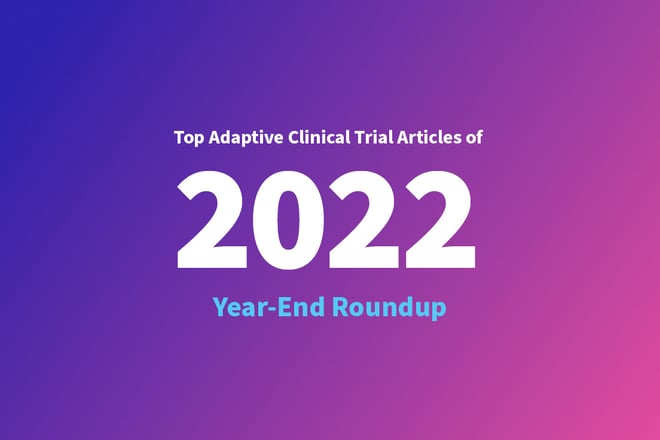To Adapt or Not to Adapt? A Decision Framework

Should your clinical trial be adaptive?
Trials that include a prospectively planned modification based on an interim analysis, otherwise known as adaptive trials, are often associated with greater efficiency and better prospects for patients without compromising statistical rigor. And new holistic approaches to creating these designs are making room for transformative, even revolutionary, changes to strategic drug development. But does this approach make sense for your trial? Consider this ten-point decision framework:
 1. Are there any regulatory concerns or complexities?
1. Are there any regulatory concerns or complexities?

2. Is there any reason to believe that decision-making will be driven by population enrichment, biomarkers, or surrogates?
 3. What are the resource constraints in areas such as drug supply and enrollment?
3. What are the resource constraints in areas such as drug supply and enrollment?
 4. Can the data monitoring committee receive and evaluate data in a timely manner?
4. Can the data monitoring committee receive and evaluate data in a timely manner? 5. Is statistical expertise available to you?
5. Is statistical expertise available to you? 6. Are forecasting tools available to you?
6. Are forecasting tools available to you? 7. How would adaptive designs optimize your financial strategy?
7. How would adaptive designs optimize your financial strategy? 8. What are the statistical needs?
8. What are the statistical needs?
 10. Will historical or real-world data be helpful in supporting regulatory submissions?
10. Will historical or real-world data be helpful in supporting regulatory submissions?For more details on each step of this framework as well as an overview of the scientific, financial, strategic, and ethical benefits of adaptive trials, download our white paper “Adaptive Trials at the Mainstream of Drug Development” below:
Read more from Perspectives on Enquiry and Evidence:
Sorry no results please clear the filters and try again

Top Adaptive Clinical Trial Topics of 2022

Bayesian Methods across the Clinical Development Journey
If you'd like updates on our blog posts, sign up for email updates below.



